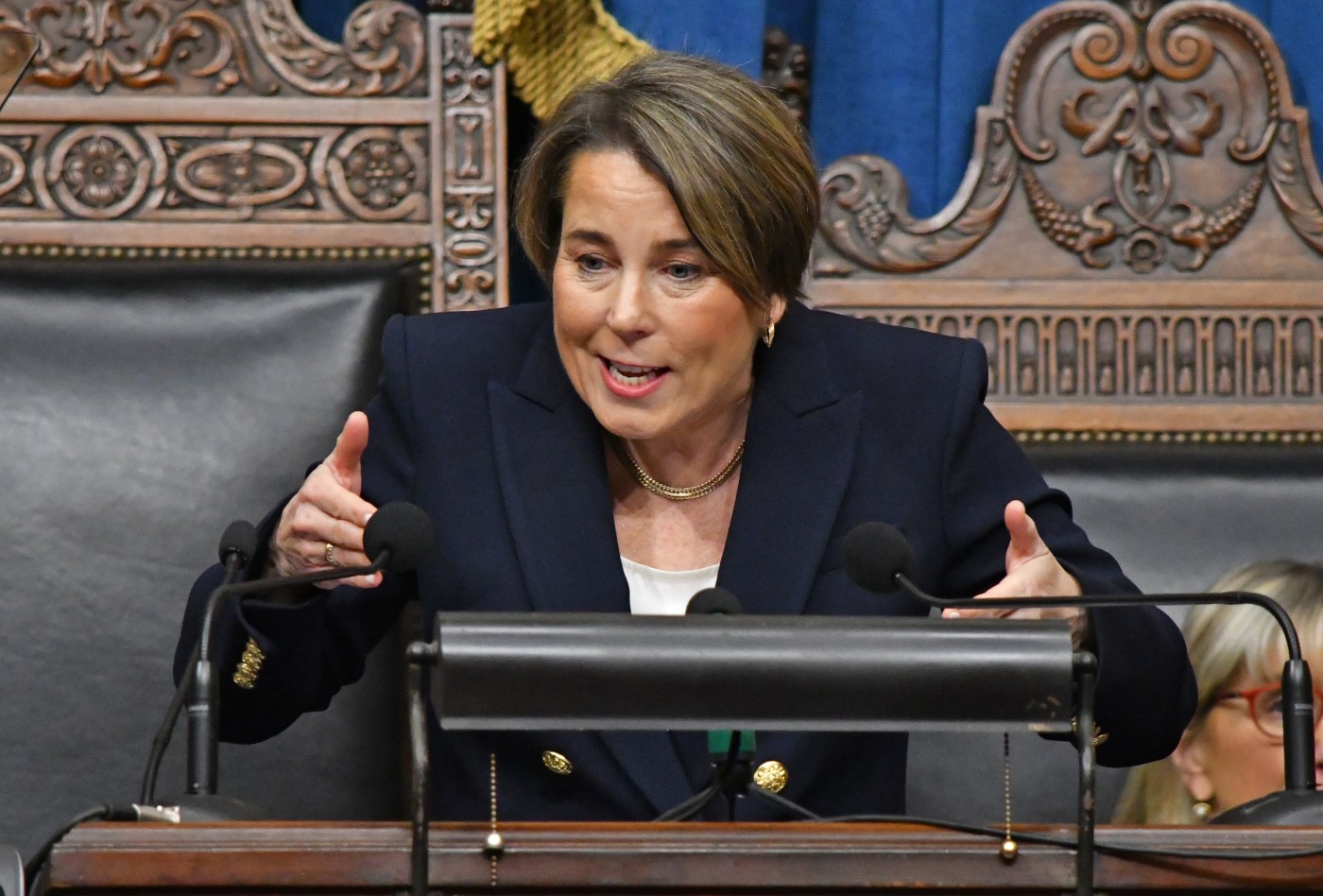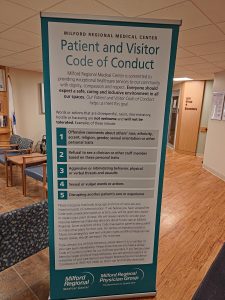
Maura Healey wants to let Massachusetts communities hike taxes on meals, hotel stays
Gov. Maura Healey announced legislation that would let cities and towns hike taxes on meals and hotel stays and give them more control over liquor licenses, moves the governor argued give municipalities streams of revenue beyond property taxes.
Healey’s plans, which she is expected to file with the Legislature Monday, calls for raising local taxes on meals by as much as 33% and on hotel stays by up to 15%. It also allows municipal officials to skirt around state approval when approving more liquor licenses.
And while Healey in her Friday announcement cast the massive municipal reform bill as a win for the 351 cities and towns across the state, some business groups and the association representing package stores in Massachusetts offered sharp rebukes.
Christopher Carlozzi, Massachusetts state director for the National Federation of Independent Business, said this is not the time to raise taxes, no matter the level, in Massachusetts.
“Adding new costs is probably not a good idea when we keep talking about affordability and making Massachusetts a more affordable place to live,” he told the Herald Saturday. “We’re trying to get people to shop, to dine, to spend their money in Massachusetts, so making it more expensive to do so, now is not the time to do that.”
The meals tax was first made available in 2009 and 251 cities and towns have adopted it, generating about $175 million in revenue in fiscal year 2023. Raising the cap on the tax could bring in $58 million more in local revenue, Healey said.
The hotel tax cap would increase from 6% to 7% for all communities other than Boston, where that cap would increase from 6.5% to 7.5%. The local meals tax would jump from .75% to 1%, according to the Healey administration.
The local tax on hotel stays, capped at 6%, was last changed in 2009 and requires a local legislative vote to go into effect. More than 200 cities and towns across the state have adopted the tax, generating $317 million in revenue in fiscal year 2023.
Salem Mayor Dominick Pangallo said he is not “philosophically” opposed to the idea of increasing the hotel or meals tax but city officials would first need to have a conversation about it.
The visitor economy is important to local small businesses, the city’s “vibrancy,” and the downtown and waterfront areas, Pangallo said. But a large number of visitors in a short time frame “definitely has impacts,” he said.
“I think that it’s important that we support those impacts with revenues that don’t ask our property taxpayers to have to fund them,” he told the Herald Saturday.
Drivers could also have to pay more for having a car under Healey’s proposal. The first-term Democrat governor wants to give cities and towns the option to put into place a 5% tax based on the value of a vehicle registered in their community.
State law sets the motor vehicle excise tax at $25 per $1,000 of a declining percent of a vehicle’s value, and the new proposal could generate an estimated $48 million more, according to the administration.
Pangallo said the vehicle excise tax “hasn’t been touched in decades” even as costs are increasing to maintain roads and infrastructure. Increased revenues to support roadway-related investments could help municipalities, he said.
But Carlozzi said many businesses rely on their vehicles and adding a new fee is “going to directly impact that.”
“That’s a problem as well, it’s just making the state more expensive. That’s just making it harder to run a business. It’s raising operating costs, it’s making it more expensive for consumers. So we are against the idea of raising taxes on any level right now,” Carlozzi said.
Republicans on Beacon Hill also expressed skepticism towards Healey’s plan.
Senate Minority Leader Bruce Tarr said the proposal “may have some valuable tools” but allowing cities and towns to raise taxes could prove burdensome for constituents.
“Now is not the time to increase the already heavy burdens of local taxation, and change the course we have been on to make our state more competitive and stem the exodus of taxpayers choosing to live in other states,” he said in a statement.
Healey announced the plan only a day after she said “no” to raising fees or taxes to pay for a suite of spending proposals she plans to include in the upcoming fiscal year 2025 state budget.
Massachusetts is expected to collect $1 billion less in tax revenues in fiscal year 2024 than state budget writers expected. That has prompted concern among many over how to pay for lofty spending proposals.
But Healey said Thursday that the state is “still seeing revenue growth,” tax hikes are not needed, and her budget proposal for fiscal year 2025 would be “fiscally responsible.” A day later, the governor said she wanted to give municipalities the option to increase fees and taxes.
“The Municipal Empowerment Act proposes multiple reforms that municipal leaders have asked for to improve the services they can provide to their communities and make operations more efficient,” Healey said in a statement.
The legislation will also propose making to-go cocktails permanent and rework the approval of liquor licenses to allow local governments to set their own quotas and “bypass the existing home rule petition process,” an idea that drew immediate pushback from the Massachusetts Package Stores Association.
The organization’s executive director, Robert Mellion, said neither the group nor its lobbyists were contacted about a proposal that he argued would have negative ramifications on liquor stores.
“We don’t want this fight but the governor is going to give us no choice,” he told the Herald Saturday. “Our members will fight to the very end for their businesses. They survived prohibition. They’ve survived everything that has been thrown off them for the last 80 years. I’m dumbfounded that we were not communicated with.”


